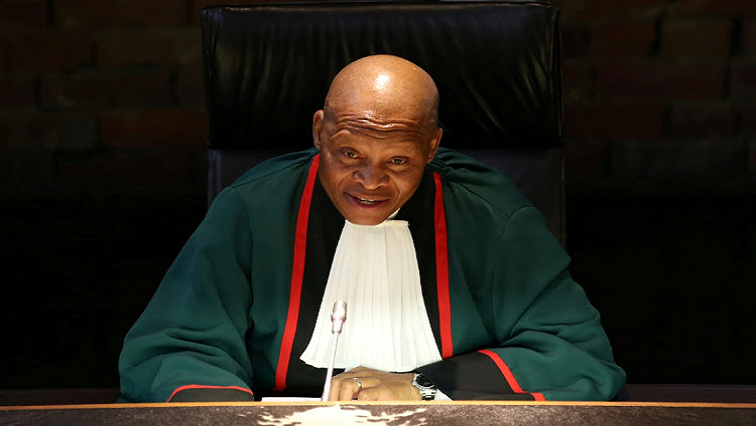There have been mixed reactions on the decision of the Judicial Conduct Committee (JCC) against Chief Justice Moegeng Moegeng.
The JCC has ordered that the Chief Justice apologise unconditionally and retract statements relating to South Africa’s stance on Israel that he made during a webinar hosted by the Jerusalem Post in June 2020.
During the webinar, Moegeng quoted a number of biblical verses that he said as a Christian made it impossible to be opposed to the state of Israel.
He went further saying that South Africa should be open to looking at its International Relations policy broadly on the Middle East crisis and consider playing a bridging role between the Israelis and Palestinians.
“Have we cut ties with our previous colonisers? Have we embarked on a disinvestment campaign against those who have been responsible for unknown suffering in South Africa and the continent of Africa? Did Israel take our land? Did Israel take the mineral wealth of South Africa and Africa? So, we have to move from principle here. We have got to have a broader perspective and say we know what it means to suffer and to be made to suffer. But we have always had this spirit of generosity, this spirit of forgiveness, this spirit of building bridges,” said the Chief Justice.
Following a public outcry over the comments, Moegeng indicated that he would not apologise for them even if 50 million people march for 10 years for him to do so.
Reaction to Chief Justice Mogoeng Mogoeng comments on Israel:
The Boycott, Divest, Sanctions Movement (SA BDS) and two other advocacy groups lodged a complaint against the Chief Justice over the statements and won.
While the group and the South African Communist Party (SACP) have welcomed the ruling, others such as the South African Zionist Federation and the South African Friends of Israel have rejected it.
SA BDS Convenor, Roshan Dadoo, says Mogoeng involved himself in a political controversy, which a Chief Justice should not be doing.
Dadoo says by making the remarks – the Chief Justice also denounced government’s policy on Paletine. “On the eve of South Africa raising a debate in the UN Security Council. The debate was in support of the human rights of the Palestinian people,” he adds.
In a statement, the SACP has urged Moegeng to comply with the JCC’s decision, saying this will assist in restoring public trust and respect for the judiciary.
However, the South African Zionist Federation together with the South African Friends of Israel, believe the order that the Chief Justice apologise and retract his statements must be taken on review.
Zionist Federation National Chairperson, Rowan Polovin, says Mogoeng’s comments were legitimate.
Polovin has denounced the JCC’s decision as part of an institutionalised cancel-culture, which sends out a message that those with whom one does not share a belief system with can be targeted.
Justice Mogoeng has 10 days to appeal the decision.
Advocate for civil society organisation, Africa for Palestine, which was one of the complainants in the case, Ben Winks, explains what is likely to happen going forward.
“If in the next 10 days he says ‘no, I will appeal,’ then he has the right to do that within a month and then a three-member panel of the Judicial Conduct Committee will conduct a hearing and will decide if the original judgement should be upheld or overturned or varied in some way.
Now, if he is unsuccessful in the appeal, he must comply with the original order to apologise. If he refuses to apologise, that in itself becomes a separate form of misconduct under the Judicial Services Act and then there will be a complaint again of having committed that form of misconduct; and that is regarded as a more serious form of misconduct and potentially an impeachable offence,” says Winks.
The Chief Justice is yet to comment on the matter.






